
Half the battle in the gym is indeed in your mind.
I've spent 15 years training in the gym, transforming from a skinny 110-pounder to a muscular 200-pounder, and I can tell you firsthand: your mind is your most powerful tool.
It's the control center that determines the results of your workouts.
Master your mind, and you'll master your body, achieving results you never thought possible.
So, let's dive deep into improving your mind-to-muscle connection and take your workouts to the next level.
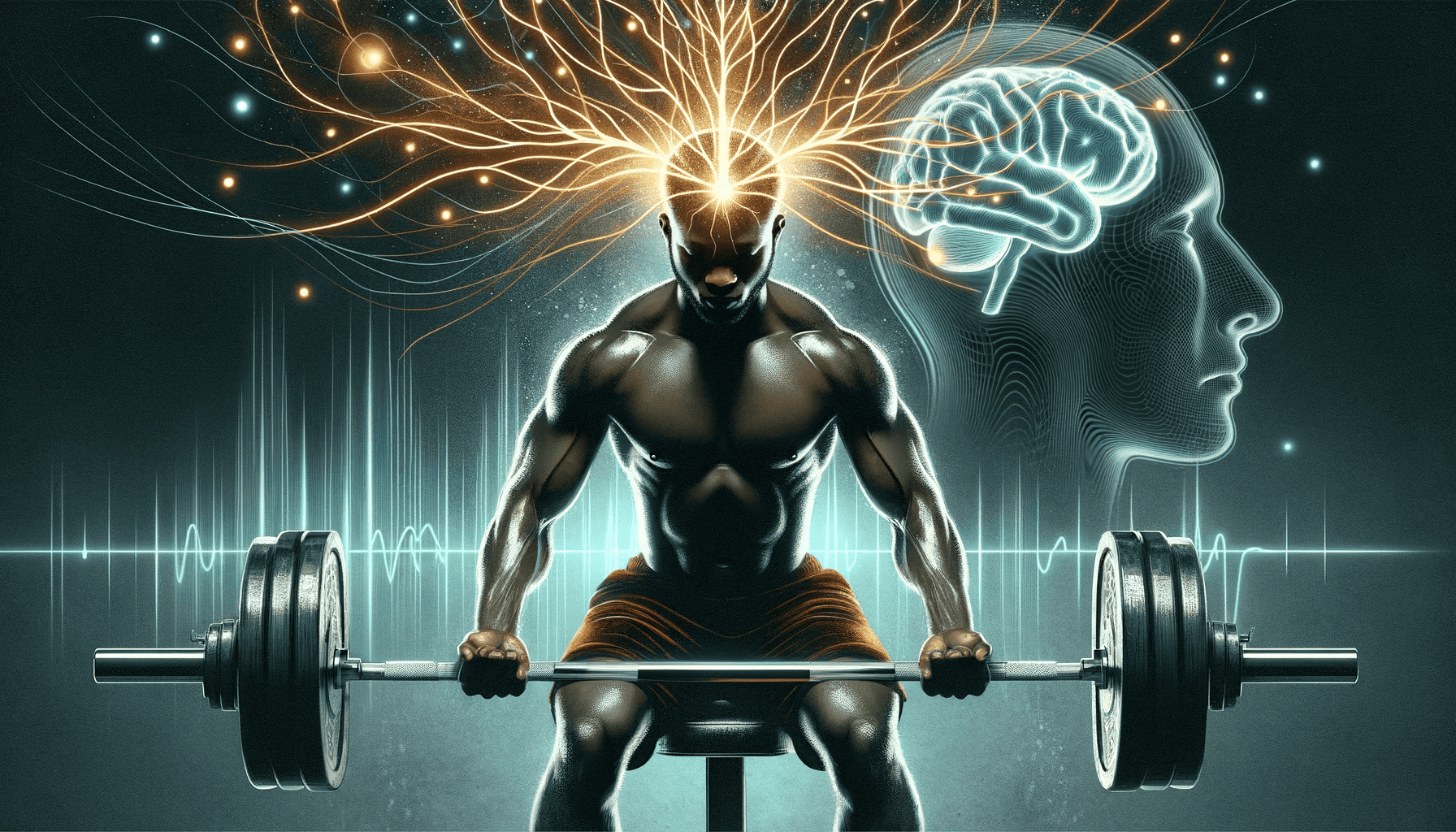
Improving your mind-to-muscle connection is key to maximizing workout effectiveness and achieving faster results.
By focusing your mental energy on the muscles you're working, you can enhance muscle activation, reduce injury risk, and get the most out of every rep.
The mind-to-muscle connection isn't just a random thing thrown around; it's backed by science.
Research shows that focusing on the muscle you're working can increase activation, making your workout more effective.
For instance, a study found that low-intensity exercise can increase upper-limb muscle contraction by over 30% when individuals exert mental effort, demonstrating an average precision of 81% in muscle activation.
So, the next time you hit the gym, remember that your mental focus can significantly impact your physical performance.
It's not just about lifting weights; it's about lifting them with intention and focus.
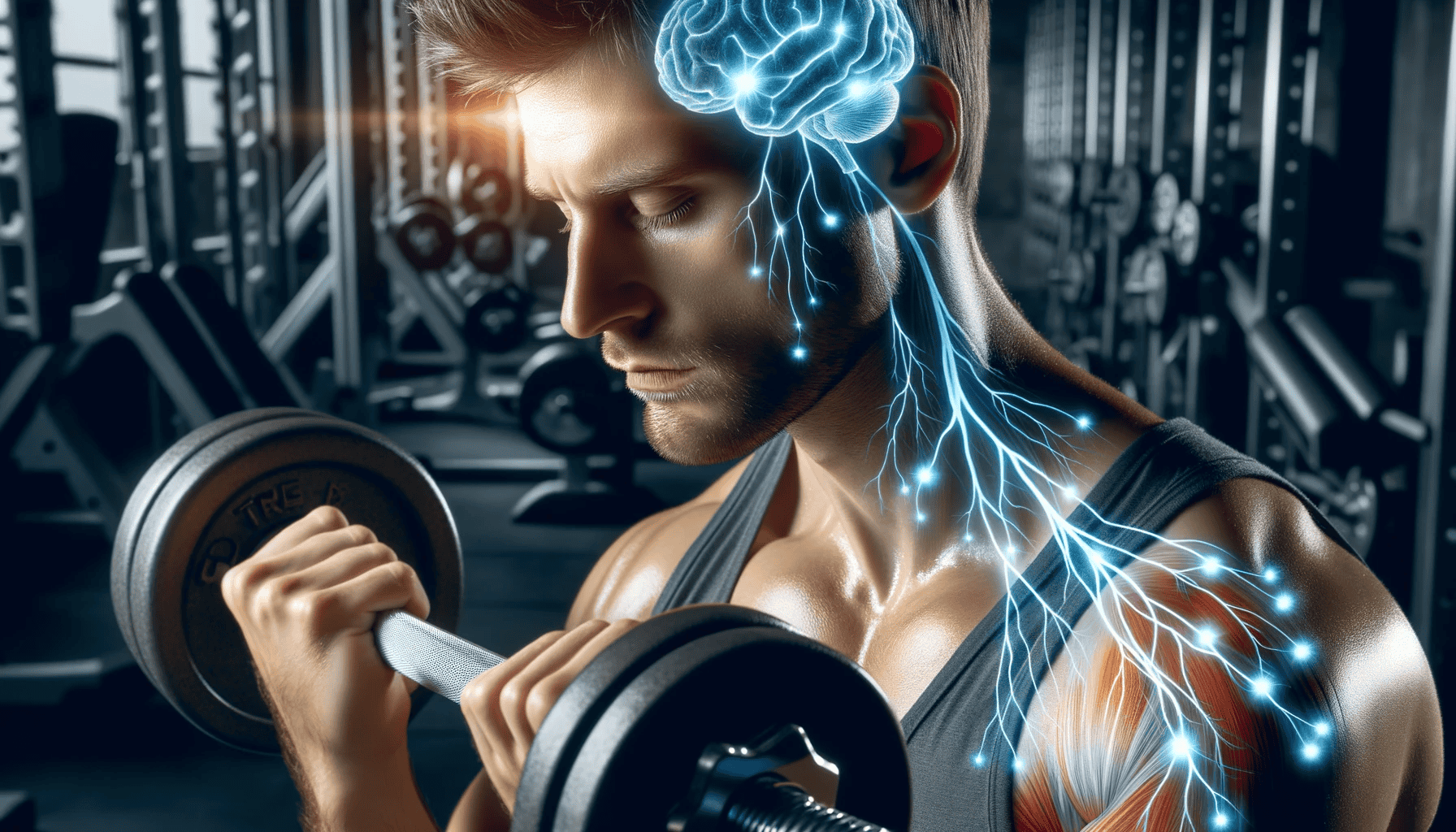
Visualization is a powerful tool that can help you focus on the muscle you're working.
Imagine the muscle contracting and expanding as you go through the motions.
This mental image can guide your focus and improve muscle activation.
Rushing through your sets can make it difficult to focus on the muscle you're trying to work.
Slow down your repetitions to feel each muscle contract and relax.
This will not only improve your form but also make your workout more effective.
Before diving into your main workout, engage in a pre-activation warm-up.
This involves doing lighter exercises that target the muscle group you'll be working on.
For example, if you do deadlifts, you might do some light glute bridges first.
Your breath can be a powerful tool for enhancing your mind-to-muscle connection.
Practice deep, mindful breathing to help center your focus on the muscle you're working.

Sometimes, lifting too heavy can cause you to lose focus on the muscle you're trying to work.
Using lighter weights allows you to concentrate on the muscle contraction rather than lifting the weight.
Whether it's your phone, TV, or even a chatty gym partner, distractions can severely hamper your ability to focus.
Make it a point to eliminate or minimize distractions to maintain a strong mind-to-muscle connection.
Increasing the time your muscles are tense during an exercise can enhance muscle activation.
This can be done by pausing at the peak of the contraction or by performing more reps.
Progressive overload involves gradually increasing the stress you put on your body during exercise.
This can be achieved by increasing the weight, reps, or sets.
It ensures that your muscles are continually challenged, thereby improving the mind-to-muscle connection.
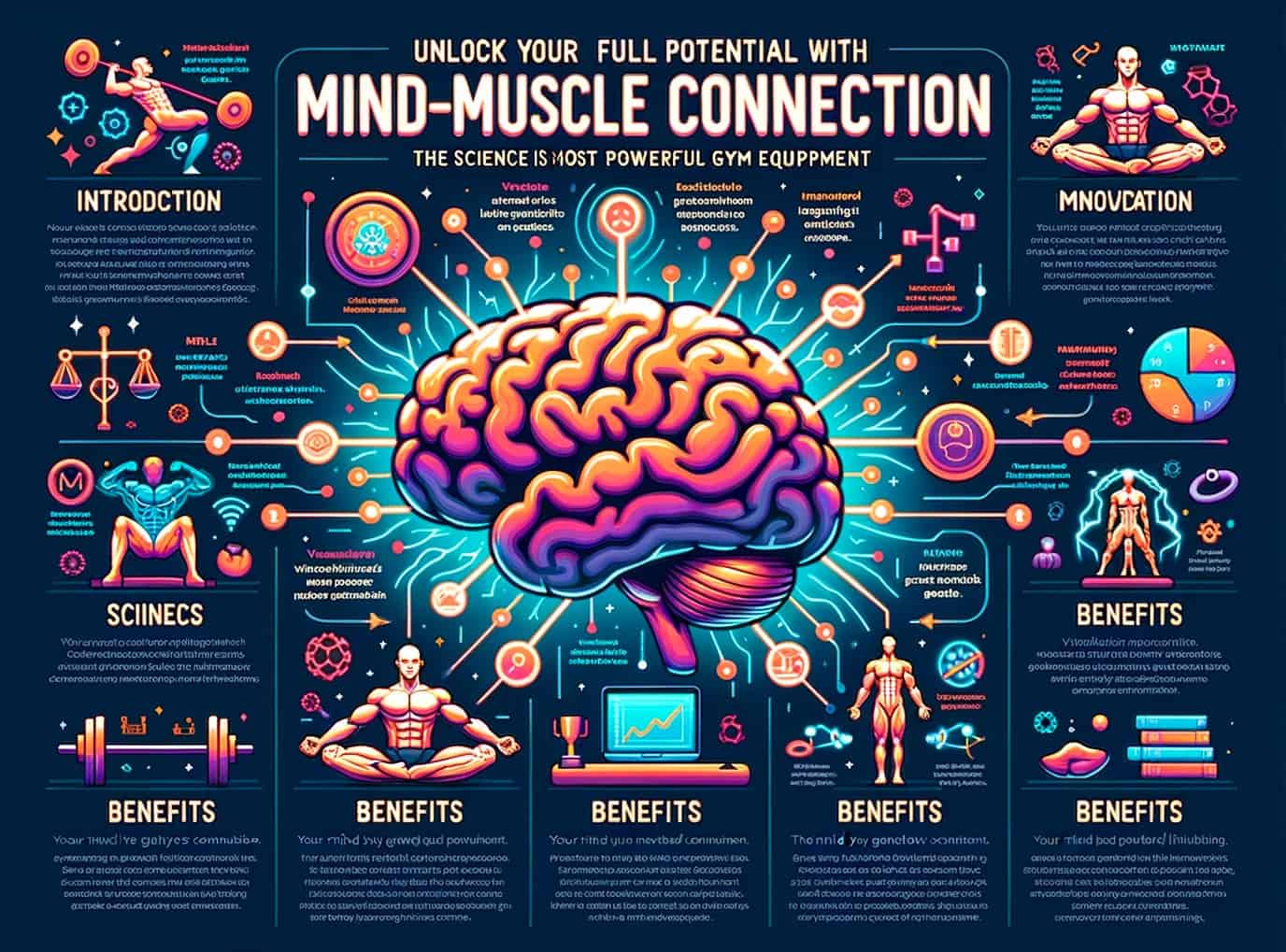
A strong mind-to-muscle connection isn't just a trendy gym phrase; it's a crucial factor that can significantly impact your workout efficiency and results.
Let's delve into why it's so beneficial.
When mentally tuned into the exercise, you're more likely to engage the correct muscle groups.
This leads to more effective workouts and better results over time.
Being mentally present during your workout allows you to perform each exercise with optimal form, reducing the risk of injury and making your workout more efficient.
When you focus on the muscle you're working, you're likely to see faster and more significant strength gains compared to just going through the motions.
A strong mind-to-muscle connection can also improve your muscle endurance, allowing you to perform more reps and sets, thereby increasing the effectiveness of your workout.
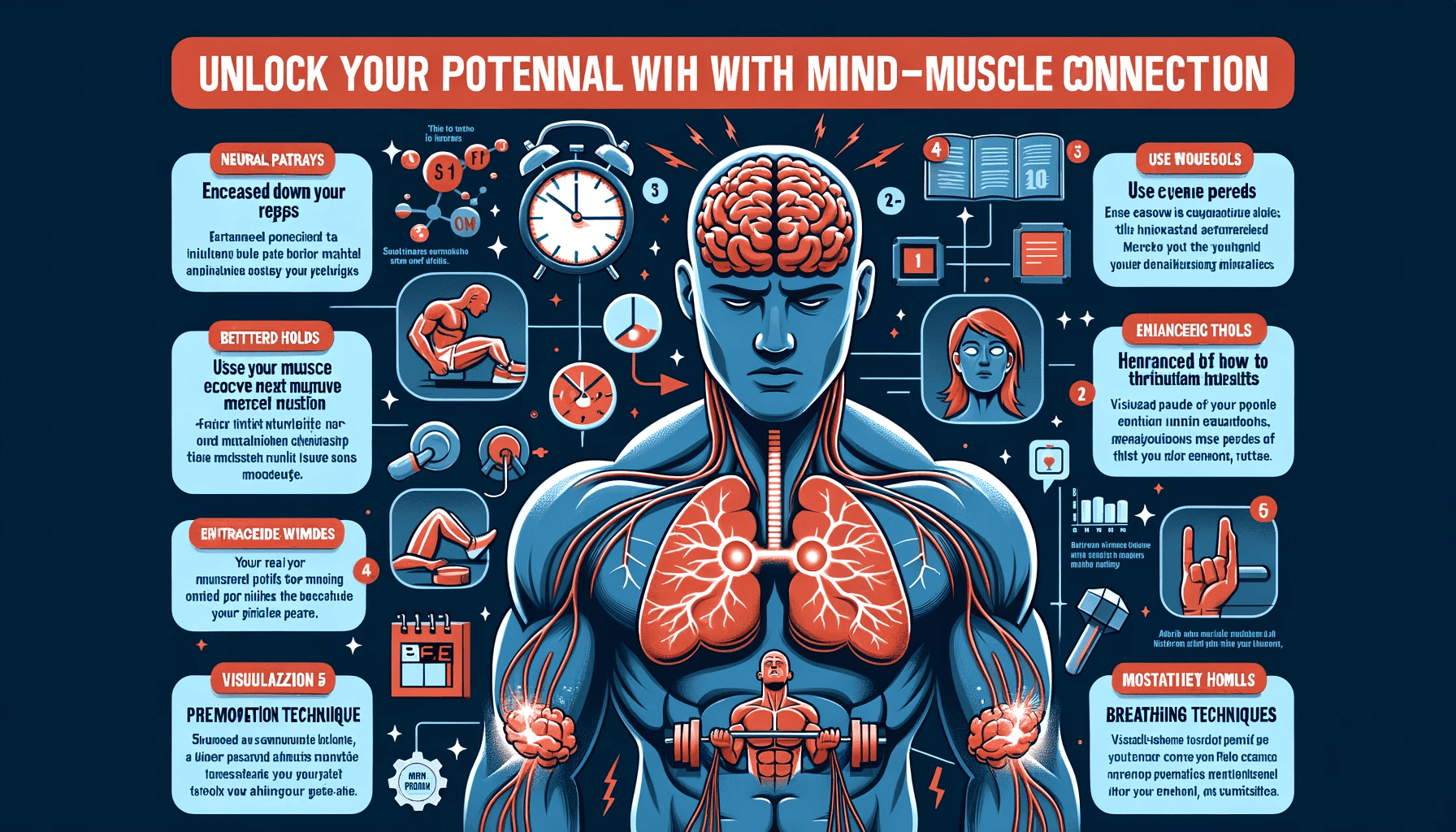
Before stepping into the gym, take a few minutes to prepare mentally.
Visualize your workout, the muscles you'll target, and how you feel during and after the exercise.
While you're in the gym, maintain a laser-like focus on each exercise.
Use the techniques mentioned earlier, like slowing down your reps and mindful breathing, to stay connected with your muscles.
After your workout, take a moment to reflect.
Did you maintain a strong mind-to-muscle connection? What could you do better next time?
This reflection will help you improve in future workouts.

When aiming to perfect your mind-to-muscle connection, some crucial pointers can make a world of difference.
Use one cue at a time to keep your focus sharp.
It's easy to get overwhelmed when you're juggling multiple cues.
Stick to one per exercise to maintain clarity and effective muscle engagement.
Pause your reps for maximum results.
Incorporating a brief pause at the peak of your muscle contraction can intensify the activation and make your workout more effective.
Don't underestimate the power of a good warm-up.
It's not just about preparing your body; it's also about setting the mental stage for a strong mind-to-muscle connection.
Leave your ego at the door.
Lifting too heavy can compromise both your form and your focus.
Opt for weights that allow you to maintain a strong connection with your muscles throughout your sets.
Lastly, revisit and revise your techniques periodically.
Your body and mind adapt over time, and what worked a month ago may not be as effective today.
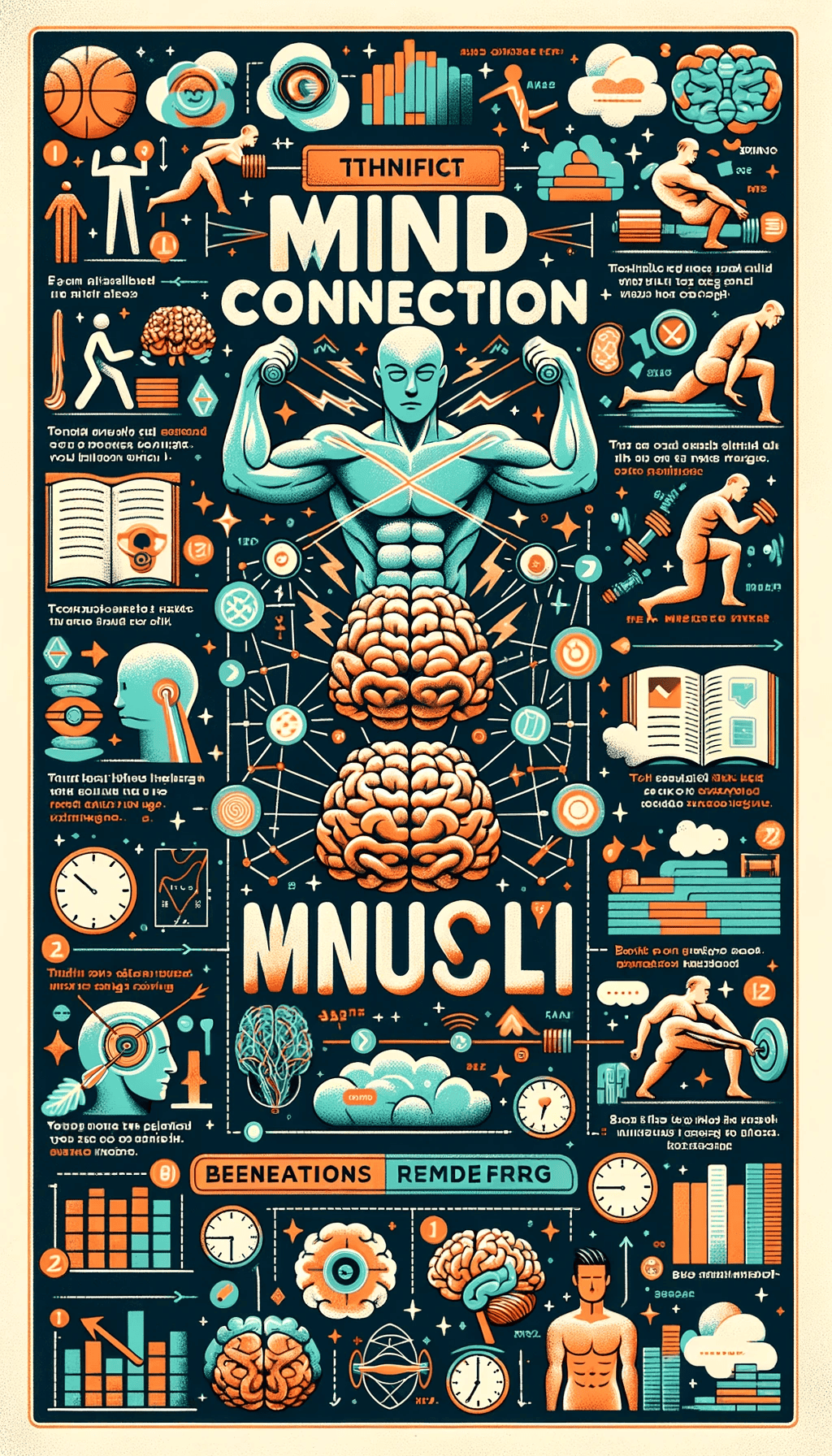
How long does it take to develop a strong mind-to-muscle connection?
There's no one-size-fits-all answer to this. It varies from person to person and depends on your experience level, focus, and how consistently you practice the techniques.
Is a strong mind-to-muscle connection only beneficial for bodybuilders?
Absolutely not. Anyone who engages in physical activity can benefit from a strong mind-to-muscle connection. It enhances workout efficiency, reduces the risk of injury, and can lead to better overall results.
Can I practice mind-to-muscle connection techniques outside the gym?
Yes, you can. Practicing these techniques in your daily activities can help reinforce the connection and make it more natural when working out.
Do I need to meditate to improve my mind-to-muscle connection?
While meditation can improve focus and awareness, it's not a requirement. However, many find that a brief mindfulness or visualization before a workout can be beneficial.
Is it possible to lose my mind-to-muscle connection if I take a break from working out?
It's possible but unlikely that you'll lose all progress. Like any skill, it may diminish if not practiced, but it's also quicker to regain once you resume your routine.
How do I know if I'm doing it right?
You'll know you're on the right track when you start to feel a stronger engagement in the targeted muscles during exercise, and likely, you'll see improved performance and results over time.
Can I use these techniques for cardio exercises like running or cycling?
Yes, a strong mind-to-muscle connection can benefit any form of exercise, not just strength training. It can help you become more aware of your form and breathing, which can improve performance in cardio activities as well.
If you found this article helpful and want to expand your knowledge on fitness, muscle building, and nutrition, we've got you covered.
Below is a curated list of articles that dive deeper into these topics.
Each article is designed to provide you with actionable tips and science-backed information to help you achieve your fitness goals.
Whether you're a hardgainer looking to bulk up or optimize your workouts, these resources are a goldmine of information.
The only limits in your workouts are the ones you set in your mind.
Focusing intently on the muscles you're working and visualizing them transforming is your ticket to success.
Moreover, envisioning yourself completing each workout with unwavering focus and conviction is equally crucial.
Your mind is a powerful tool; wield it wisely to unlock your full potential.
Useful Links
 About FitFrek
About FitFrekFitFrek operates as an independent platform, offering comprehensive workouts, programs, routines, guides, and unbiased reviews to accelerate your progress. We pride ourselves on our honesty, delivering straightforward and candid insights. FitFrek does not offer medical advice, diagnosis, or treatment services.